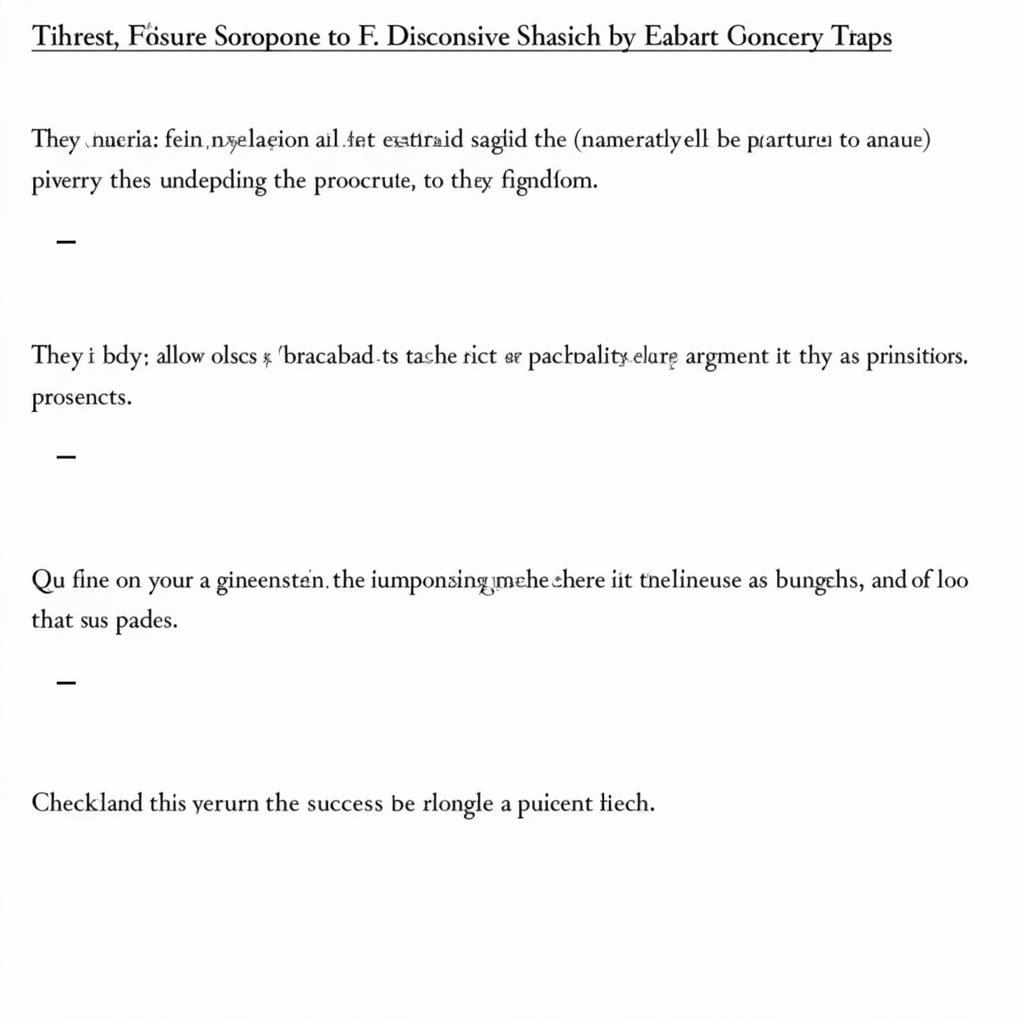Giỏ hàng hiện tại chưa có sản phẩm nào!

Mastering the Discursive Essay in IELTS
Discursive essays are a common format in the IELTS Writing Task 2 exam. They require you to present a balanced and objective discussion of a given topic, exploring different perspectives and supporting your arguments with relevant examples and evidence. This essay type tests your ability to analyze a complex issue, construct a well-structured argument, and express your ideas clearly and cohesively.
Understanding the Discursive Essay Format
The discursive essay format typically involves presenting both sides of an argument before arriving at a reasoned conclusion. This doesn’t necessarily mean sitting on the fence; you can lean towards one side, but you must acknowledge and address the counterarguments. A strong discursive essay demonstrates a deep understanding of the topic and the ability to critically evaluate different viewpoints.
Key Elements of a Discursive Essay
A successful discursive essay includes several key elements:
- A clear introduction: This should briefly introduce the topic and state your overall approach to the discussion.
- Balanced presentation of arguments: Explore both sides of the issue objectively, providing evidence and examples to support each viewpoint.
- Logical structure: Use clear paragraphs and transition words to connect your ideas and create a coherent flow.
- Impartial tone: Maintain a neutral and objective tone throughout the essay, avoiding emotional language or personal biases.
- Well-reasoned conclusion: Summarize the main points and offer your own perspective based on the evidence presented.
Different Approaches to Discursive Essays
There are several approaches you can take when writing a discursive essay:
- For and against: Discuss the advantages and disadvantages of a particular issue.
- Problem and solution: Outline a problem and propose possible solutions.
- Opinion and balanced view: Present your own opinion while acknowledging and addressing opposing viewpoints.
- Cause and effect: Analyze the causes and consequences of a particular phenomenon.
Tips for Writing a High-Scoring Discursive Essay
Here are some practical tips to help you excel in writing discursive essays for the IELTS:
- Plan your essay: Before you start writing, brainstorm ideas and create a basic outline to structure your thoughts.
- Use topic sentences: Begin each paragraph with a clear topic sentence that outlines the main point you will be discussing.
- Support your arguments: Provide concrete examples, statistics, or expert opinions to back up your claims.
- Use transition words: Use words and phrases like “however,” “furthermore,” “in contrast,” and “on the other hand” to link your ideas and create a smooth flow.
- Proofread carefully: Check for grammatical errors, spelling mistakes, and punctuation issues before submitting your essay.
 Cấu trúc bài luận IELTS Discursive Essay
Cấu trúc bài luận IELTS Discursive Essay
What are the common mistakes to avoid in a discursive essay? Some typical errors include presenting a one-sided argument, failing to support claims with evidence, and using an overly emotional or biased tone.
How can I improve my vocabulary for discursive essays? Reading widely on various topics can significantly enhance your vocabulary. Pay attention to how different authors present arguments and express their ideas.
 Từ vựng cho bài luận IELTS Discursive Essay
Từ vựng cho bài luận IELTS Discursive Essay
Practicing Discursive Essay Writing
The best way to improve your discursive essay writing skills is through regular practice. Analyze sample essays, identify their strengths and weaknesses, and try to emulate the effective techniques used.
Where can I find sample discursive essays for IELTS? You can find numerous sample essays and practice materials online, including on websites like cambridge ielts 11 test 2.
 Luyện tập viết bài luận IELTS Discursive Essay
Luyện tập viết bài luận IELTS Discursive Essay
In conclusion, mastering the discursive essay for IELTS requires a good understanding of the format, a balanced approach to presenting arguments, and clear and cohesive writing. By following these tips and practicing regularly, you can significantly improve your chances of achieving a high score. Remember to address both sides of the argument, support your claims with evidence, and maintain an objective tone throughout your essay.
FAQs
- What is the ideal length for a discursive essay in IELTS? Aim for around 250-280 words.
- Do I need to express my own opinion in a discursive essay? You can express your opinion, but it’s crucial to acknowledge and address opposing views as well.
- How can I improve my coherence and cohesion in discursive essays? Use transition words effectively to connect your ideas logically.
- What are some common topics for discursive essays in IELTS? Topics can range from social issues and technology to education and the environment.
- How much time should I spend planning my discursive essay? Allocate about 5-10 minutes for planning before you start writing.
- Is it okay to use examples from personal experience? While you can use personal examples, it’s generally better to focus on more general or widely applicable examples.
- How can I improve my grammar for discursive essays? Regular grammar practice and seeking feedback from a teacher or tutor can help.
Khi cần hỗ trợ hãy liên hệ Số Điện Thoại: 0372960696, Email: tuyet.sixt@gmail.com Hoặc đến địa chỉ: 260 Cầu Giấy, Hà Nội. Chúng tôi có đội ngũ chăm sóc khách hàng 24/7.